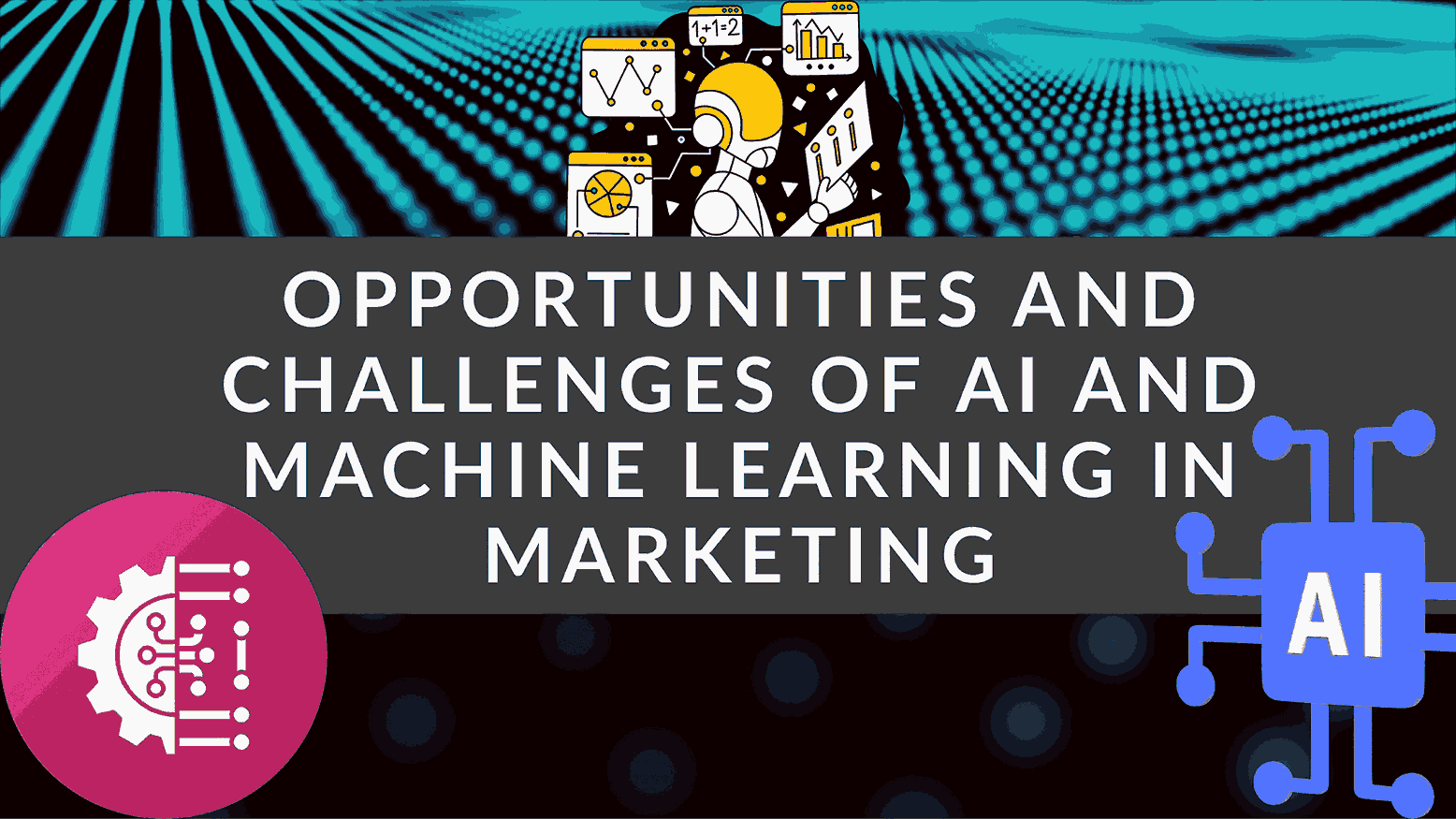Opportunities and challenges of AI and machine learning in marketing
- AI Image Generators Software AI Writing Assistant Popular Tools AI Tools


Artificial intelligence (AI) has already begun to revolutionize how businesses operate, and the marketing industry is no exception. As AI technology advances, marketers find new ways to gain insights into customer behavior, personalize messaging, and automate processes. In this article, we’ll explore the future of AI in marketing, the opportunities it presents, and the challenges that must be addressed.
Opportunities for AI in Marketing
1. Personalization
One of the most significant opportunities for AI in marketing is personalization. With AI-powered algorithms, marketers can analyze vast amounts of customer behavior and preferences data to create personalized messaging and experiences. This can help businesses build stronger relationships with customers and increase customer loyalty.
Imagine receiving marketing messages that are tailored precisely to your interests and needs. AI enables businesses to achieve this level of personalization, making customers feel seen and valued. Whether it’s product recommendations, content suggestions, or email campaigns, personalization is a powerful tool in a marketer’s arsenal.
2. Predictive Analytics
Another opportunity for AI in marketing is predictive analytics. AI algorithms can identify patterns and predict future behavior by analyzing customer data. This can help businesses anticipate customer needs and preferences and tailor their marketing strategies accordingly.
Predictive analytics can be a game-changer in marketing. It allows businesses to be proactive rather than reactive. By understanding customer behavior and predicting future trends, marketers can stay one step ahead and deliver the right message at the right time.
3. Chatbots
Chatbots are another area where AI is making a significant impact in marketing. By leveraging natural language processing (NLP) and machine learning, chatbots can conversationally interact with customers, providing personalized recommendations and resolving issues in real time.
Chatbots offer real-time customer support, 24/7, and they do it without the need for human intervention. They enhance the customer experience by providing instant responses and guidance, making customers feel valued and supported.
4. Marketing Automation
AI is also making marketing automation more effective. With AI-powered tools, businesses can automate tasks like lead generation, lead scoring, and email marketing. This can free marketers to focus on more strategic tasks, like developing campaigns and analyzing data.
Marketing automation streamlines repetitive tasks and ensures that the right message is delivered to the right audience at the right time. It not only saves time but also helps in achieving consistency and precision in marketing efforts.
Challenges for AI in Marketing
1. Data Privacy
One of the biggest challenges for AI in marketing is data privacy. With the ability to collect and analyze vast amounts of customer data, businesses must ensure that they handle this data responsibly and transparently. This means complying with data protection regulations and being transparent about data collection and use.
Maintaining customer trust is essential in marketing. Marketers need to be transparent about how they collect and use customer data. Striking the right balance between personalization and privacy is crucial.
2. Bias
Another challenge for AI in marketing is bias. AI algorithms are only as good as the data they are trained on, and if that data is biased, the algorithms will be too. This can lead to discriminatory marketing practices and undermine customer trust.
It’s essential to ensure that the data used to train AI systems is diverse and representative. Regular audits and evaluations of AI models can help identify and mitigate bias.
3. Talent Shortage
AI technology is still relatively new, and there is a need for more talent with the skills and knowledge to implement it effectively. Businesses may need help finding the right people to build and maintain AI systems.
Finding skilled AI professionals can be a challenge, and competition for talent is fierce. Businesses may need to invest in training and development to build a capable AI team.
Conclusion
AI is transforming the marketing industry, providing new opportunities for personalization, predictive analytics, chatbots, and marketing automation. However, some challenges must be addressed, including data privacy, bias, and talent shortage. As businesses continue to explore the potential of AI in marketing, it’s essential to prioritize ethical and responsible use of the technology to build trust with customers and ensure its long-term success. The future of AI in marketing is promising, and by overcoming these challenges, businesses can fully harness its potential.
For further insights into AI in marketing, you can explore these resources:
- The Role of Artificial Intelligence in Marketing: Opportunities and Challenges
- AI and Machine Learning in Marketing
- Business Opportunities and Challenges in AI and Machine Learning
- AI in Marketing
- The Future of AI in Marketing: Opportunities and Challenges
Explore these valuable resources to stay informed about the ever-evolving landscape of AI in marketing.








